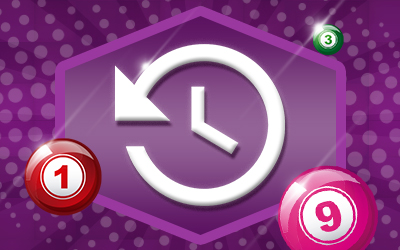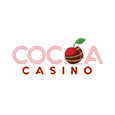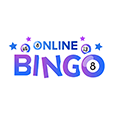 Strange as it may seem, the modern Bingo game can probably trace its roots back to the Italian Renaissance of the 16th Century; yes, amongst the great cultural achievements of Leonardo Da Vinci, Michaelangelo and Raphael, the Italian High Renaissance can also claim the origins of Bingo as its own, when it launched the Italian National Lottery in 1530. It’s true that evidence of the Bingo-like game Keno was found in Asia even earlier than this, but it’s now generally accepted that it was the European development of Lottery games that was the catalyst for the Bingo games we know (and love) today.
Strange as it may seem, the modern Bingo game can probably trace its roots back to the Italian Renaissance of the 16th Century; yes, amongst the great cultural achievements of Leonardo Da Vinci, Michaelangelo and Raphael, the Italian High Renaissance can also claim the origins of Bingo as its own, when it launched the Italian National Lottery in 1530. It’s true that evidence of the Bingo-like game Keno was found in Asia even earlier than this, but it’s now generally accepted that it was the European development of Lottery games that was the catalyst for the Bingo games we know (and love) today.The next chapter in the story of modern Bingo takes us to France in the late 18th Century where the Lotto game that had become popular there developed a playing card that will be very familiar to players of the 90-ball game. An arrangement of a 3 x 9 grid containing 15 different numbers between 1 and 90 was the ticket, and the first player to cover a horizontal row after numbered discs, selected from a bag, were called. Sounds familiar?
With Lotto well-established in Europe it was only a matter of time before the game would travel farther West, and it would be in the US that Lotto would make its transformation into ‘Bingo’.
The man credited with ‘inventing’ Bingo in the US was the owner of a struggling toy manufacturer called Edwin S. Lowe. Facing ruin following the Stock Market Crash and subsequent Depression of 1929, Lowe was out on the road trying to sell, sell, sell, when he came across a country carnival. What caught his attention that night was that all the booths were closed, bar one that was a hub of activity. What Lowe had stumbled upon was a booth playing a variant of Lotto, called ‘Beano’. Why Beano? Simply because the players used beans to cover numbers on their cards as they were called. Filling a five number line on their 5 x 5 grid cards either vertically, horizontally or diagonally elicited a cry of ‘Beano!’ to alert the caller that they’d won.
Edwin Lowe was keen to play Beano for himself that night, but as legend has it couldn’t get a seat, so popular was the booth – even up until 3am when the booth owner finally closed up (much to the chagrin of the clearly addicted players)!
Lowe, spotting the opportunity of a hit toy on his hands, hung around to talk to the booth owner. He learned that the owner had come across Lotto while working in Germany, and had seen its potential to work as a good carnival attraction. With a few adaptations, and a change of name to Beano, this was the phenomenon Lowe had just witnessed.
Lowe returned to his native New York and set to work creating a prototype of the game for his company. The result was test-driven on Lowe’s friends and it was during one excitable session that the defining moment for Bingo came. Legend has it that a female friend, getting very carried away with the action, became so over-excited at the prospect of winning that on hearing her final number called fumbled her words and bellowed “BINGO!” instead of “Beano”.
Rechristened ‘Bingo’, Lowe’s mass-market version of Beano was an instant hit and saved his company. Spawning several imitators, Lowe graciously encouraged them to use Bingo as the name for a paltry fee, and so that soon became the name of the game in the public consciousness, usurping both Beano and Lotto games that had inspired it.
The final character who deserves an honourable mention for their services to modern Bingo is the mathematician Professor Carl Leffler. A crumbly academic at Columbia University, Leffler was called in by Lowe for his huge maths brain when it became clear that Bingo could work on a huge scale if a significant number different number combinations could be created for the player cards. Lowe was seeking a way to have huge numbers of people play a single game, but with the possibility of only one winner and Leffler was the man to sort out the maths. Leffler pulled off the superhuman task of devising the 6,000 unique cards Lowe required but, if many accounts are to be believed, went more than slightly doolally doing it!
This last development of the game created the Bingo that took America by storm – only five years after seeing the game at the carnival, there were an estimated 10,000 Bingo games being played very week. And the rest, as they say, is history.



